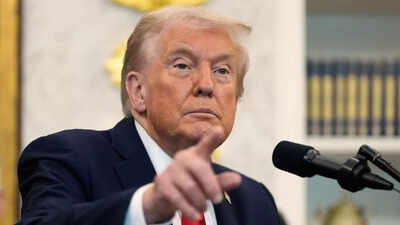The pardon of Changpeng Zhao, founder of crypto giant Binance, sparked waves online when Donald Trump stood by his decision, dismissing questions about personal ties and insisting the clemency was justified. At a White House briefing, he claimed he had “been told he had a lot of support” and asked reporters, “He wasn’t guilty of anything?” despite Zhao’s 2023 guilty plea and four month prison term. The move comes amid scrutiny of business links between Zhao, Binance, and the Trump family’s crypto venture, adding fuel to the political controversy.
Trump’s public defence and dismissal of ties
Trump denied any personal relationship with Zhao and said he often grants pardons based on recommendations and broad public support. He argued that Zhao had been treated unfairly by the previous administration and downplayed the seriousness of his conviction. Throughout his remarks, Trump presented the decision as part of a wider effort to correct what he claims were unjust prosecutions. Changpeng Zhao pleaded guilty in 2023 to charges related to Binance’s failure to enforce proper anti money laundering controls and served a short prison sentence. Trump’s presidential pardon removes remaining restrictions on Zhao’s business activities and erases the criminal conviction from his record, reigniting debate over how political influence intersects with justice.
Business connections that fuel controversy
Democratic critics have pointed to substantial financial ties between Binance and the Trump family’s crypto enterprise, World Liberty Financial. Partnerships and investments linking the two operations have led to accusations that Zhao’s pardon may not have been purely based on principle, but instead aligned with personal business gains for the Trump family.The decision highlights a dramatic shift in the administration’s stance toward cryptocurrency. Supporters claim the pardon signals a more innovation friendly approach, while opponents warn it undermines regulatory accountability and may embolden companies that have skirted financial compliance rules. The episode has already prompted calls for greater transparency around presidential pardons linked to business interests.



